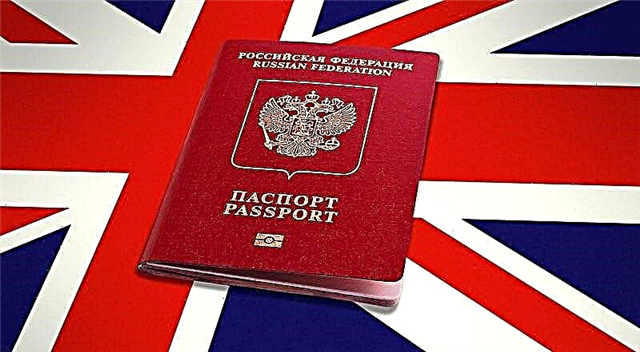Japan is one of the most closed countries for migrants. A peculiar culture, noticeable problems with demography and everyday xenophobia create additional barriers to moving and adapting. Having decided to change the country of residence from Russia to Japan, a Russian should seriously master the language and customs of the Japanese so as not to find himself in social isolation.
Who can apply for citizenship
According to the law on emigration, in order to obtain a passport of the country, you must meet the following conditions:
- Age 20 years or more;
- Full legal capacity;
- Living in the country at least 5 years;
- Lack of convictions and violations of law and order;
- Stable income.
In addition, the country's migration service will personally assess the applicant. Officials can refuse to register citizenship based on subjective opinion, without any apparent reason.

Who is prohibited by law from becoming a citizen
Like most other countries, Japan will not be happy:
- People with a criminal record;
- Sick with some socially dangerous diseases like tuberculosis and AIDS;
- People without a stable income and place of residence;
- Also, citizenship cannot be obtained by people previously deported from the country for any reason.
Methods for obtaining citizenship
There are four main ways to obtain Japanese citizenship:
- By birthright in the country (or origin from Japanese parents);
- After getting married to a Japanese citizen;
- Naturalization for long-term residents in the country;
- Registration after studying at a university or official employment.
It should be remembered that the Japanese are very scrupulous about foreigners moving to the country, "gaijin", so the basis for obtaining citizenship should be really serious.
By birth and origin
You May Also Like
The easiest way to obtain citizenship of a country is to be born in it or to Japanese parents. In the first case, the parents must have an official basis for a long-term stay in the country (residence permit or permanent residence), in the second, one of the parents must have Japanese citizenship.
If both parents have different citizenship, then the children will be able to choose which country they will become citizens of, up to up to 22 years of age. Dual citizenship is prohibited under Japanese law.
As a result of marriage
Getting married or getting married greatly simplifies obtaining a visa and permanent residence, being the simplest way to move to the country for a long time. Initially, the husband / wife of the Japanese is issued a temporary visa for a period of one year, which will be extended if the marriage continues. After a couple of years of marriage, permanent residence is issued almost automatically, without any difficulties and delays.

The problem with this method is that upon divorce, the migration service almost immediately deprives the migrant of his visa / permanent residence and deports him from the country. Therefore, at the time of divorce, you need to be ready to talk with the emigrant service about a stable source of income, housing and general independence.
Only people who have clearly joined Japanese society will be allowed to reside in the country after a divorce.
After five years of being married, the spouse can apply for a passport. In the absence of offenses, with a good family income, a high level of knowledge of the language and culture of the country, there will be no problems with registration.
By naturalization
Citizenship can be obtained if you have lived in the country for a period of more than five years. The country's migration authorities are extremely reluctant to provide passports to foreigners without a rare profession or a significant source of income, so they will have to be reasonably convinced.
Noticeable advantages in the eyes of officials will be:
- Knowledge of the Japanese language, customs and culture at a high level;
- Participation in the public life of the country, local organizations and clubs;
- Possession of medical and pension insurance;
- Acquisition of real estate in the country.
The coincidence of all points does not give any guarantees - the final decision is always with the official. It is necessary to provide as much facts and evidence as possible about integration into the life of the country in order to facilitate this decision for him.

You May Also Like
Training and employment
Study in Japan entitles you to a temporary student visa for a period of one year. The document is renewed subject to the continuation of training or official employment after its completion.
Education at the university and further employment in the specialty give the green light for obtaining a residence permit / permanent residence and further registration of citizenship after several years of work.
Moving to the country in search of work is possible for highly qualified specialists. Most of all, in Japan, qualified doctors and IT specialists with knowledge of the language are required - two out of three applicants receive a visa and citizenship in the future.
Most large corporations require knowledge of business Japanese (which differs markedly from everyday language).
As in the case of training, a foreigner will have his visa extended for several years in a row, and then, after the end of the probationary period, at the discretion of officials, permanent residence can be issued with a further transition to citizenship.
Other methods
The country has a small refugee quota, but it is mainly applied to neighboring Asian countries and people with Japanese roots. For Russians, this opportunity is practically closed - however, they are very reluctant to accept other refugees from the CIS and the Middle East. Over the past years, according to statistics, only 0,3% from all applications.
There are a small number of illegal migrants in the country, but it almost makes no sense. Most of the work will be closed for the illegal, he has no rights and he will be deported from the country at the very first contact with the authorities.
In what cases is dual citizenship possible?
Dual citizenship is generally prohibited for Japanese residents, but there are several loopholes to circumvent the ban.
The most common example is the birth of a child in a mixed marriage. In this case, the parents have the right to request the status of dual citizenship for the child, so that he himself can determine the country of residence after the age of majority. The adult will have two years to choose from.
If for some reason the child was granted the citizenship of two countries from birth, Japan will not apply for this status.
The procedure for obtaining citizenship
To start the procedure, a foreigner must submit a petition in Japanese in a standard form.
You will have to obtain citizenship in the following order:
- Sending a petition to the Ministry of Justice of Japan;
- Preparing and conducting negotiations with representatives of the migration service;
- Communication with the country's police officers (all conversations are recorded);
- Passing exams for reading and writing skills;
- Proof of income (at least 2 thousand euros per month).
You should be prepared for calls to work, interviews with neighbors and friends. It is advisable to warn people about a possible call from the police in advance - this will help to avoid unpleasant incidents.

Necessary documents and requirements for them
List of documents required for citizenship:
- Birth certificate;
- Certificate of no criminal record;
- Medical examination certificate;
- Valid certificates of residence permit / permanent residence;
- Certificate of income.
The Japanese are very sensitive about their parents and the continuity of generations. In addition to the original of your own birth certificate, you may be required to provide the original parental marriage certificate, as well as a letter from the father and mother, in which they fully approve the decision to change citizenship.
For people from single-parent families and those in conflict with their parents, becoming a Japanese citizen will be much more difficult.
Where to go when applying for citizenship
The petition is forwarded to the nearest branch of the Japanese Ministry of Justice. In the process of considering the application, the officials will several times invite the applicant for an interview to clarify the details, as well as drop in to visit the future Japanese.
Terms of registration
The minimum period for starting the naturalization procedure is five years of residence in the country. Obtaining a passport may take as long as it will take: there are no time limits for officials, all additional procedures and checks are at their discretion.
There is practically no standard procedure - each applicant is checked individually, so the processing time can vary greatly from case to case.
Possible reasons for refusal and what to do in this case
If you refuse, you should first file a complaint with the higher authority of the Ministry of Justice, describing the problem in detail. This solves most of the problems with local authorities, although the procedure will be delayed. If the complaint is unsuccessful, the next step is to go to court.
Before the trial, you need to make sure that there is enough money for the services of a lawyer for at least a year - such civil cases are often delayed, and without the help of a qualified lawyer, it will be almost impossible to win the process.
Despite the difficulties of adaptation, Japan will be an excellent choice for relocation. An unusual climate from continental in Hokkaido to the subtropics of Okinawa, a high standard of living, the lowest crime rate in the world, career growth in huge corporations - this is what a migrant will get after going through seven circles of bureaucratic obstacles before applying for a visa and citizenship.











